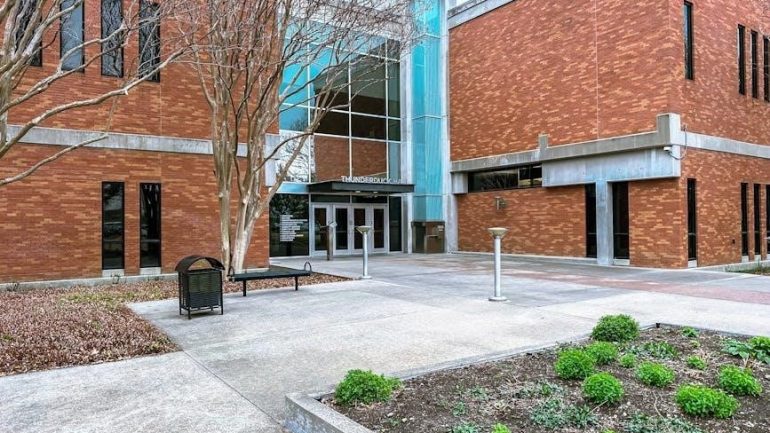Walk to Emmaus: Talk Outlines Overview
The Walk to Emmaus program uses fifteen talks, each with provided outlines, delivered by different presenters. These outlines are designed to ensure that pilgrims are exposed to the complete message of Emmaus. The talks build sequentially, delivering a unified message. These talk outlines are available in PDF format.

Purpose of Walk to Emmaus
The Walk to Emmaus serves as a spiritual renewal program intended to strengthen the faith of Christian individuals. Its primary objective is to foster a deeper awareness of God’s grace and inspire participants to live out their faith in their daily lives. The experience seeks to equip members for Christian action within their homes, churches, workplaces, and communities.
Through a structured three-day weekend, Emmaus aims to enliven and supplement existing church involvement, not to replace it. The program encourages participants to use their talents for Christ’s Kingdom. It focuses on discipleship, encouraging a life of study and Christian action, mirroring the early disciples who learned from Jesus.
Emmaus strives to inspire, challenge, and equip individuals, leading them to a renewed commitment to their faith. The talks and activities are designed to provide a comprehensive spiritual experience, fostering personal growth and a deeper understanding of Christian principles. Ultimately, the Walk to Emmaus seeks to empower individuals to live a life fully dedicated to God. It is a life-changing event for pilgrims.
Structure of the 3-Day Walk
The Walk to Emmaus is a structured three-day event designed for spiritual renewal. The weekend includes a series of fifteen talks, each building upon the previous one, to present a comprehensive message. These talks are delivered by both laity and clergy, using provided outlines as a base, with personal insights incorporated.
Agape plays a crucial role in the experience, encompassing general, table, and personal forms of love. The schedule includes times for worship, reflection, and small group discussions. Participants engage in activities meant to foster community and spiritual growth. The environment is carefully cultivated to encourage openness and vulnerability.
The weekend also includes meals and fellowship, creating a supportive atmosphere. Chapel services are integrated into the schedule, providing opportunities for prayer and spiritual reflection. The structure is designed to provide a balanced experience of learning, worship, and community. The Emmaus experience is intended to be a transformative encounter, leading to a deeper connection with God and fellow believers. The activities, talks, and discussions create a powerful environment for spiritual growth.
At the heart of the Walk to Emmaus experience are fifteen talks, strategically sequenced to create a cohesive and impactful message. Each talk builds upon the previous one, guiding participants through a journey of spiritual discovery. These talks are not merely lectures; they are opportunities for reflection, introspection, and personal connection.
The topics range from foundational concepts like grace and piety to practical applications of faith in daily life. Presenters, both lay and clergy, utilize provided outlines to ensure consistency and accuracy, while also incorporating their own experiences and insights. This blend of established doctrine and personal testimony creates a dynamic and engaging learning environment.
The talks cover themes such as priorities, grace, discipleship, and the body of Christ. They challenge participants to examine their beliefs, values, and actions. They inspire action in their homes, churches, places of work and communities. The talks invite pilgrims to reflect on their relationship with God and the world around them. The presenters share insights and guidance on how to live a more fulfilling and meaningful life.

Talk 1: Priorities
The initial talk, “Priorities,” sets the stage for the entire Walk to Emmaus experience by prompting participants to reflect on what truly matters in their lives. This talk challenges individuals to examine their values, time allocation, and resource management. It encourages participants to consider whether their actions align with their stated beliefs.
The talk explores the concept of prioritizing God in all aspects of life. It delves into questions like: “What do you think about?” “How do you spend your money?” and “How do you spend your time?” These questions are designed to reveal a person’s true priorities. It invites a deep examination of one’s daily habits, relationships, and commitments.
The presenter guides participants in identifying potential misalignments between their professed faith and their actual behavior. This talk aims to provide a foundation upon which subsequent talks will build. This is a chance to consider how to reorder their lives to reflect a God-centered existence. This session is designed to spark introspection and motivate positive change.
Talk 2: Prevenient Grace
Building upon the foundation laid by the “Priorities” talk, the second talk, “Prevenient Grace,” delves into the concept of God’s grace that precedes any human action or understanding. This grace is understood as God’s active presence in our lives, drawing us closer to Him even before we are consciously aware of it. It sets the stage for our response to God’s love.
The talk emphasizes that God initiates the relationship with humanity, offering grace freely and unconditionally. It explores how prevenient grace works in our lives, softening our hearts and preparing us to receive the Gospel. This grace enables us to recognize our need for God and respond to His invitation.
This presentation helps pilgrims understand that salvation is not earned but is a gift freely offered by God. It encourages participants to recognize the ways God has been working in their lives, even before they consciously sought Him. It highlights God’s persistent pursuit of humanity. The speaker reminds pilgrims of God’s love.
Talk 3: Priesthood of All Believers
The “Priesthood of All Believers” talk, the third in the Emmaus Walk series, explores the revolutionary concept that all Christians are ministers of God’s grace. It emphasizes that every believer has direct access to God through Jesus Christ and is empowered to serve in His name. This talk challenges the traditional view of a select few being designated as religious leaders.
It underscores the idea that each Christian is called to participate actively in sharing the Gospel and ministering to others. Pilgrims are encouraged to recognize their unique gifts and talents as tools for serving God. The talk also emphasizes that this priesthood entails responsibility.
The presenter reminds the pilgrims that they should minister to others, in their homes, churches, places of work, and communities; The talk encourages pilgrims to see their everyday lives as opportunities to live out their faith and be agents of God’s love. Each follower of Christ can minister to the world.
Talk 4: Justifying Grace
The “Justifying Grace” talk, positioned fourth in the Walk to Emmaus series, delves into the transformative power of God’s unearned favor. It elucidates how grace, freely given through Jesus Christ, reconciles humanity to God, absolving individuals of their sins and restoring them to a right relationship. The essence of this talk lies in conveying the profound truth that salvation isn’t earned through works, but received as a gift.
The talk explains that justifying grace is not just a one-time event but a continuous process of being made right with God. It underscores the importance of accepting this gift with humility and gratitude. Pilgrims learn that this grace empowers them to live lives that reflect God’s love and righteousness.
They are encouraged to embrace the freedom and joy that come from knowing they are forgiven and accepted. The presenter emphasizes the importance of sharing this liberating truth with others, so they are set free.

Talk 5: Life of Piety
The fifth talk in the Walk to Emmaus series, “Life of Piety,” explores the practical outworking of faith in daily living. It delves into what it means to live a life dedicated to God, characterized by reverence, devotion, and obedience. This talk emphasizes that piety is not merely outward religious observance but a heartfelt commitment to aligning one’s thoughts, words, and actions with God’s will.
The “Life of Piety” talk encourages pilgrims to cultivate a deeper relationship with God through prayer, scripture study, and acts of service. It challenges them to examine their values and priorities, ensuring they reflect a genuine desire to honor God in all aspects of their lives. Participants learn that piety involves both personal discipline and active engagement in the world, seeking to be a positive influence in their families, communities, and workplaces.
Talk 6: Growth Through Study
Talk Six, “Growth Through Study,” emphasizes that learning about God, life, and ministry is an important part of the process by which we move closer to imitating Jesus, the model for our lives. Study is not just an intellectual exercise but the total experience of seeking, encountering, and appropriating the truth for a life fully lived. The early disciples were students, learning from Jesus.
The talk underscores that discipleship, derived from the Latin “discipulus,” means being a learner, a pupil of a master. Pilgrims are encouraged to give their minds to God through diligent study, recognizing that this practice enhances their understanding of faith and its practical application. Through study, individuals encounter truth, and they appropriate the truth for a life fully lived.

Talk 7: Means of Grace
Talk Seven, “Means of Grace,” likely explores the various channels through which God’s grace is conveyed to humanity. While specific details of the talk are unavailable from the provided context, it generally covers how God uses specific tangible methods to impart his love, forgiveness, and transformative power into our lives. These means often include practices such as prayer, scripture reading, sacraments, fellowship, and acts of service.
These aren’t magic rituals, but rather divinely appointed avenues through which believers actively engage with God and receive his blessings. The talk likely emphasizes that these means are not ends in themselves but rather pathways to deepen our relationship with God and experience his grace in tangible ways.




